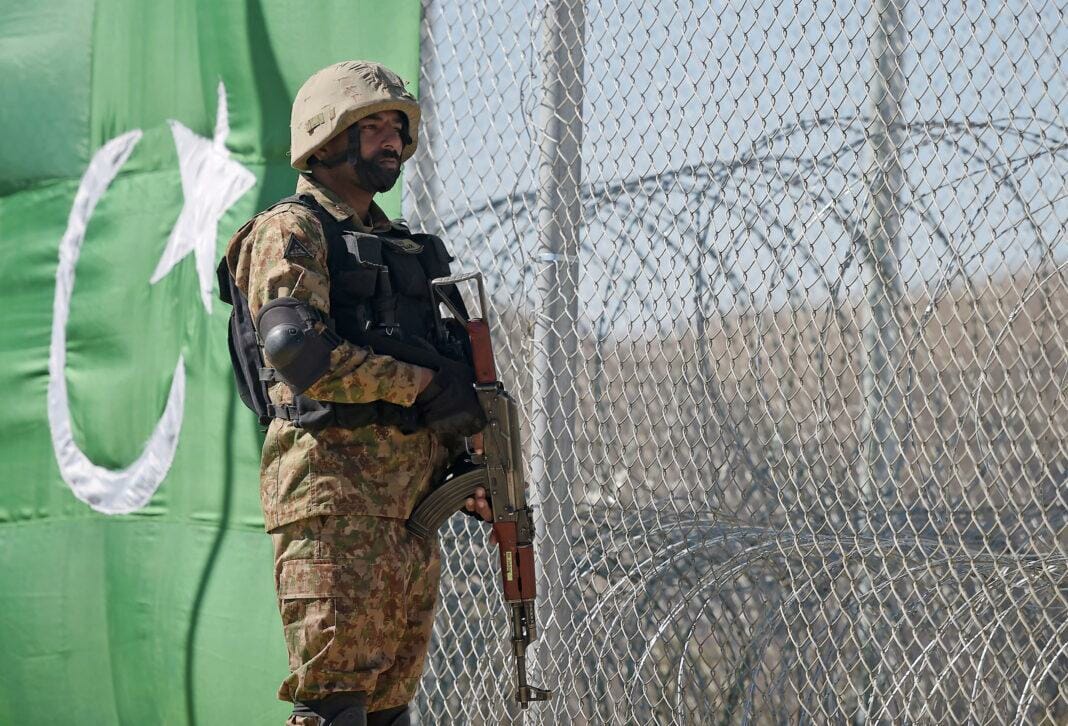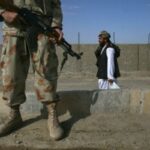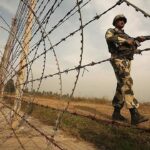States operate in a brutal and anarchical international system wherein power, national interests and realpolitik dictate the rules of the game. Every state looks to safeguard and advance its interests. This leads to conflicts, confrontations and crises. Some interests are secondary, which allow states a space for bargaining but the others are vital to an extent that even states are compelled to go to war.
Pakistan is a state in every sense of the word. It is neither failing nor is likely to fail in the future. It has the elements of national power, which are gradually becoming substantial. But as Pakistan is trying to increase its power profile, it is increasingly coming at loggerheads with various elements. Indeed, the threats to the state of Pakistan are multifarious and multi-dimensional.
Threat perception and its analysis is important to devise approaches to secure the country from internal and external enemies. A detailed inspection on the various security challenges that Pakistan faces is well in order and much-needed.
The citizens are the most important crutch to a state followed by workable institutions. The state derives its strength from the trust that citizens have on its institutions. The internal threats to Pakistan are existential in nature. There are reasons to make this assertion.
Terrorism has taken and continues to take its toll on Pakistan. The country has lost in men and material over the past decade and a half. The militant organizations from all factions have targeted the state institutions and citizens alike. Attacks create fear, hopelessness and most importantly a rift between the state organs and the people. It is noteworthy to mention that anti-state elements elicit their strength from creating distrust between the state and the people. Every incident of carnage lowers the cost to carry out the next one because an atmosphere of shock and awe is created. It is rather easier for the non-state actors to convert a rookie into a living and mobile bomb. The state on the other hand has to incur prohibitive costs to protect its citizens from a zealot attacker.

Moreover, there are two other problems associated with fighting terrorists at the tactical level. One that miscreants thrive on changing methods, location and appearance. The Law Enforcement Agencies (LEAs) can easily pound their camps but given that locations are not as important for these irregulars as they are for conventional forces, the effort may not weaken the war-waging capabilities to that extent. The identification of friends and foes isn’t easy in this war as the assailants are similar in appearance to the ones LEAs are protecting. Even otherwise attackers without an exfiltration plan are slated to die, hence killing the foot soldiers is not a cost for the handlers.
Despite these challenges, the armed forces have militarily dented the war-fighting capabilities of the miscreants. However, the threat is not likely to fizzle out in its entirety. This is because of our lack of focus in the non-kinetic aspects of counter terrorism and the presence of the network of abettors, both internal and external. The support that forces inimical to Pakistan from external hostile powers is corroborated time and again. Not only the confessions of spies and terrorists is an endorsement but history also bears testimony.
On the external front, India remains the biggest challenger to Pakistan’s security. The Indian political and military leadership have strongly expressed their resolve to teach Pakistan a lesson. With the ever-changing nature of war, India has the leverage of using a multitude of options against Pakistan. Apart from ramping up sub conventional war against Pakistan, it will increase its clout in Afghanistan to strengthen anti-Pakistan elements. Through a massive diplomatic offensive, it will try to influence the US to twist Islamabad’s arm. However, India could be more lethal at the sub conventional and conventional levels in the days to come.
The rising resistance in Kashmir is seemingly a difficult preposition for the Modi Regime. The indigenous drive for freedom in Kashmir will be increasingly attributed to Pakistan. Not only could India foment trouble inside Pakistan through the use of sub conventional means. This is not a mere analysis but a policy action proposed by the Indian National Security Advisor, Ajit Doval.
Military confrontation on the Line of Control, Working Boundary and the International Border cannot be ruled-out. Skirmishes and cease fire violations can be followed by surgical strikes as envisioned in the new joint doctrine of the Indian armed forces. The desire to rejuvenate and invoke the proactive war strategy (Cold Start) was expressed by none other than the Indian Army Chief. The dangers associated with any kind of military adventures are too significant to ignore. Furthermore, there are inklings of India doing away with her No-First-Use (NFU) policy and replacing it with splendid first strikes. This is a bane for stability in South Asia and it increases Pakistan’s threat perceptions.
The efforts to undermine the China Pakistan Economic Corridor (CPEC) are out in the open after the confessions of Kulbushan Jadhav. India could exploit the deteriorating situation in Afghanistan to influence Afghan and US opinion against Pakistan. The surge of the Taliban will be blamed on Islamabad’s dualism, which would invite US sternness and pressure.
The threats are there for all to see and realize. The enemy is showing an expected behavior. It is now upon Pakistan to hold its own. The state has to first ensure that monopoly of violence is not broken; the writ is not challenged in its territory. Besides, the state has to pander to the interests of its people, for they are the pillar of strength Most importantly, the state has to show a clear resolve in using all elements of power to not only secure itself but also to augment its status in the international system.
Syed Ali Zia Jaffery is a Research Analyst and Sub-Editor at Global Village Space (GVS). He frequently writes on defense and strategic affairs of South Asia. He is a Contributing Analyst to CommandEleven.








